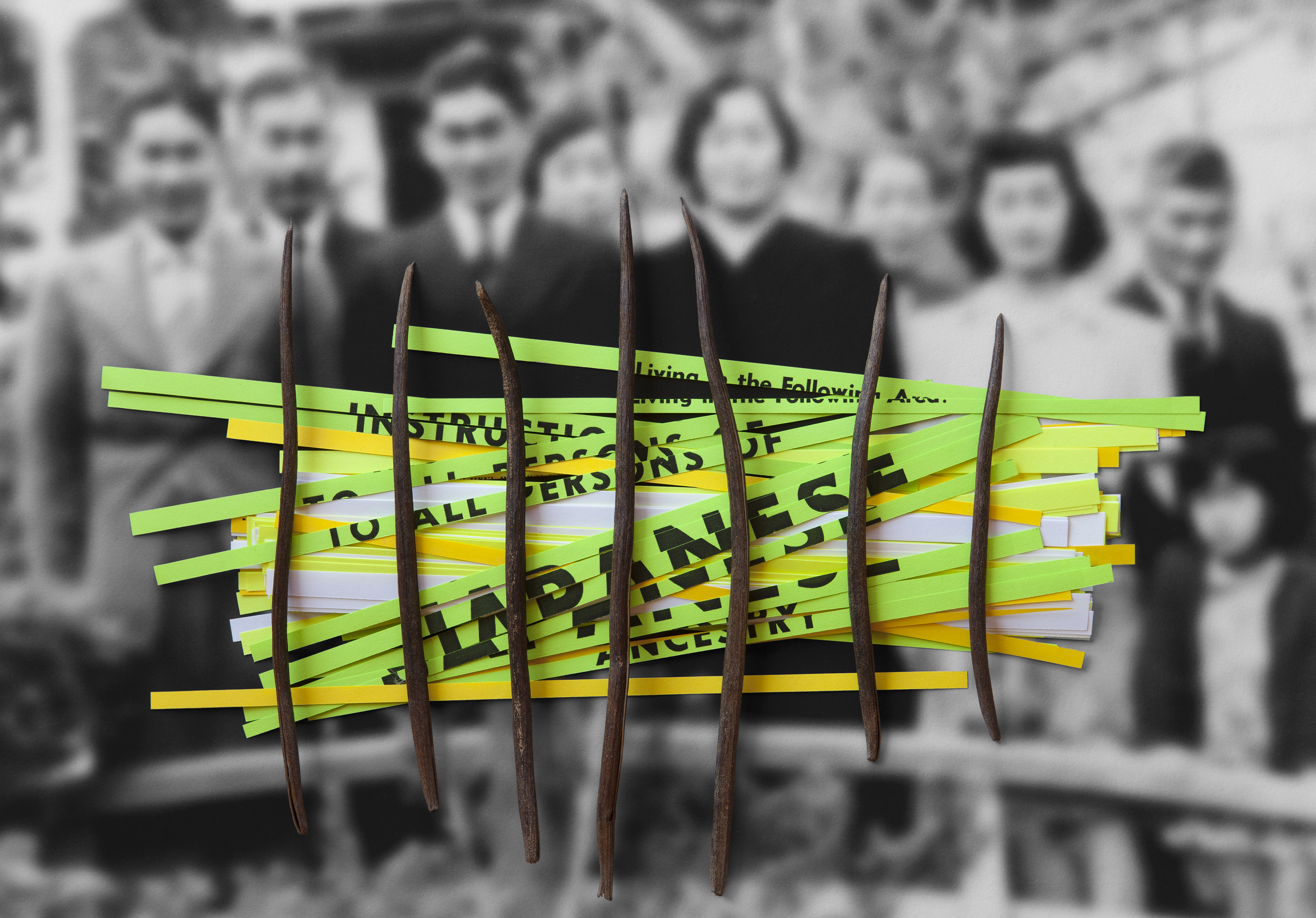

During World War II, the West Coast Japanese Americans lacked the power to overcome politics and prejudice to forestall their imprisonment by the US government. Although their voices were not heard in 1942, the incarcerees speak over the passage of time about the importance of protecting civil liberties for all. Through readings, music, art, and poetry, descendants and allies of incarcerees bring life to voices featured in the book When Can We Go Back to America?: Voices of Japanese American Incarceration During WWII by Susan H. Kamei. We must hear, remember, and carry forward their messages.
The program will feature readings from When Can We Go Back to America? by Sansei (third generation) and Yonsei (fourth generation) Japanese Americans whose family members were incarcerees and members of the 100th Infantry Battalion/442nd Regimental Combat Team; art from the exhibit Resilience – A Sansei Sense of Legacy; a performance of “Citizen 13660: Vignettes” for string and clarinet quintet composed by Chad Cannon, based on illustrations from Miné Okubo’s book Citizen 13660; and poetry by incarcerees included in the book, presented by traci kato-kiriyama, artist and author of Navigating With(out) Instruments.
This program is presented in partnership with the USC Shinso Ito Center for Japanese Religions and Cultures.
Image credit: Jerry Takigawa, E.O. 9066
Read a 2021 interview with Susan H. Kamei about her book, When Can We Go Back to America?, on Discover Nikkei. READ NOW
